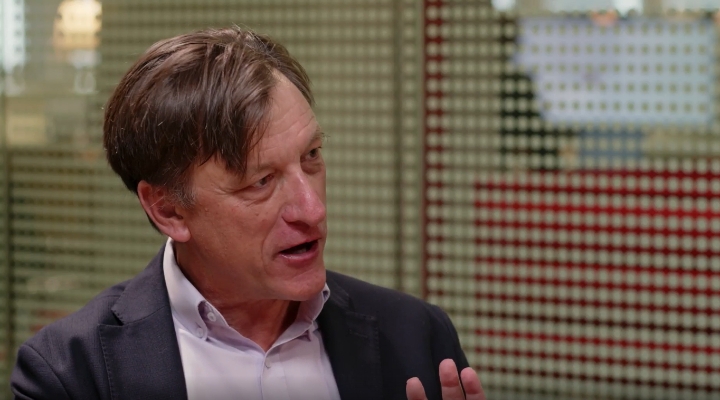Lukas Strobl: Fund managers have had a rough few years as their actively-managed products have tended to underperform much cheaper ETFs and the money kept flowing to other asset classes. I'm here with Morningstar fund analyst Mathieu Caquineau.
Mathieu, how have these patterns begun to affect the asset management companies themselves?
Mathieu Caquineau: Well, some of them have made the difficult decision to restructure and cut jobs. Just going back to your points about passives, if you look at the market share of passives over time, it's grown from around 10% 15 years ago to 27% today. And that's a huge shift. It has impacted the profitability of the whole industry and asset managers, well, they have to adapt. And of course, the impact is more profound for purely active managers. If you're a globally diversified fund company with a product range spanning passives and actives like BlackRock, for example, you're not going to feel the pain to the same extent.
Strobl: So, who specifically has been affected by these layoffs so far?
Caquineau: Well, first, let's say that asset managers will try to protect their investment teams because this is really the core of their business. Also, it could be seen as bad press cutting investment roles while trying to attract and retain talent. So, cost-cutting typically target so-called supporting functions. And that's what we've seen in the last 18 months with job cuts announced by several asset managers like, for instance, the asset management subsidiary of Goldman Sachs, Morgan Stanley or JPMorgan, they've all announced layoffs, but they've kept their portfolio managers and analysts as far as we know.
Another example is Abrdn. They've announced cost reduction, but they haven't touched any investment roles. But sometimes the investment personnel is impacted. Take Baillie Gifford, for example. They've reportedly laid off dozens of people early this year and some of them in their fixed income team. Lazard also announced a plan to cut around 100 jobs in their asset management unit. Most of them were sales and marketing, but we've seen a few fund managers leaving at around the same time. And more recently, Fidelity announced quite a large plan to cut the jobs around 9% of their total headcount, and it's unclear at this point whether investment roles will be impacted, but they might be.
Strobl: Yeah I mean, the Fidelity cut was huge. And obviously, here at Morningstar, when we rate a fund, one of the pillars of that rating is the people pillar. And when I look at our top-rated funds, what I see very often is a deep bench of analysts at these funds. So, I'm wondering how bad does this have to get before you, for example, start to reevaluate the people pillar rating of some of these strategies?
Caquineau: Well, that's a good question. Obviously, we keep a close eye on this. For investors, the worst-case scenario is when a firm is starting to cut down investment resources that can have harmful effects on the funds you own and on the teams running your money. But so far, the layoffs announced have not had a huge impact on the core capabilities of the firm. So, we haven't changed actually people rating or parent rating on any of the firms that have announced layoffs at this stage. But we're keeping an eye on this. That could change. And we'll make sure that any meaningful impact is reflected in our rating as we're looking for potential negative effects on those firms and teams.
Strobl: So, the front offices have largely been left unscathed so far. Thank you for these insights, Mathieu. For Morningstar, I'm Lukas Strobl.




























